5. Wayne’s World 2
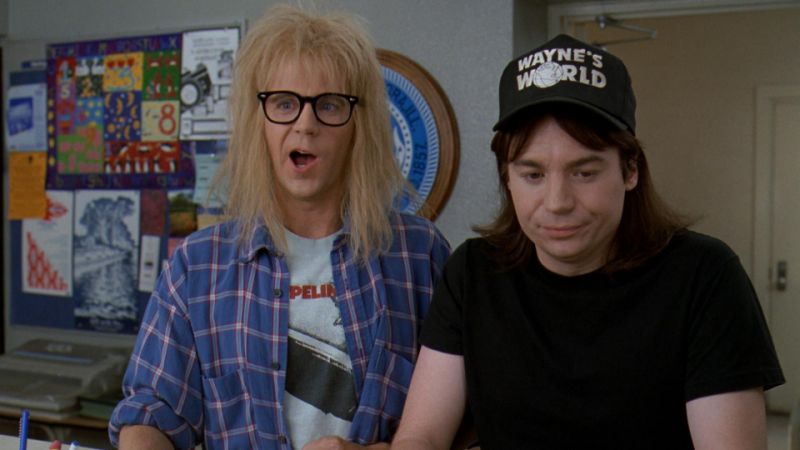
The number of good comedy sequels is very small, as most comedy sequels either rely too much on repeating the first film’s jokes or fail to capture the same sense of humor. One notable exception to the trend is Wayne’s World 2, the sequel to the cult comedy that follows the further adventures of Wayne (Mike Myers) and Garth (Dana Carvey). After finding mainstream success, Wayne and Garth get a mysterious message from the ghost of Jim Morrison that asks them to organize a massive music festival.
The film continues the surreal and meta humor of the first one, with one particularly great moment in which Wayne and Garth parody the end of Thelma & Louise. It also contains many memorable supporting characters and cameos, including Christopher Walken as the villainous Bobby Cahn, who attempts to seduce Wayne’s girlfriend Cassandra Wong (Tia Carrere). It’s rare for a comedy sequel to be just as funny as the original, but in Wayne’s World 2, the chemistry between Myers and Carvey remains just as entertaining.
4. Bill & Ted’s Bogus Journey
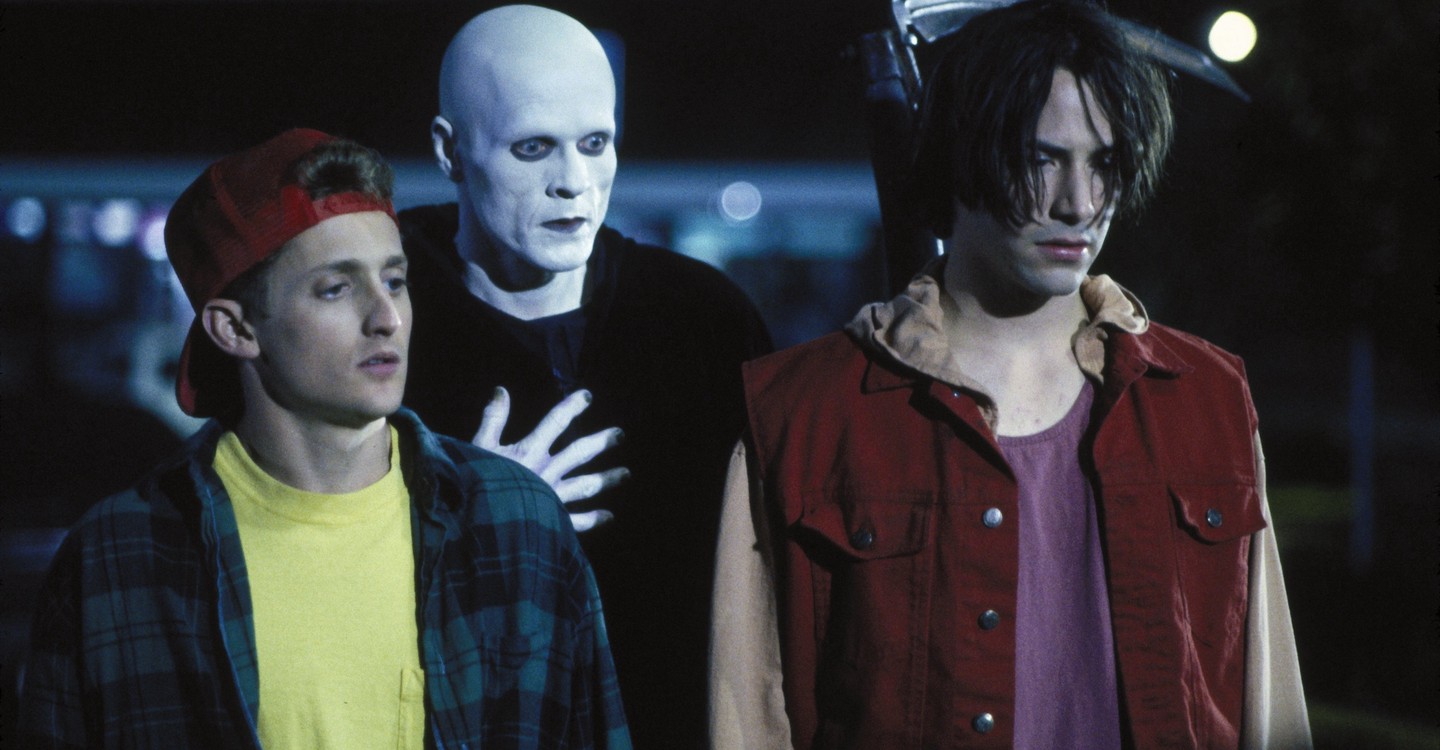
1989’s Bill & Ted’s Excellent Adventure was a surprisingly earnest, engaging comedy that combined the dim-witted antics of its protagonists with entertaining riffs on various historical figures. It’s always hard making a sequel to a cult classic, but like Wayne’s World 2, Bill & Ted’s Bogus Journey retains the chemistry between the two leads, but takes the story in a drastically different direction.
Instead of traveling through history in order to prepare for a history test, Bill (Alex Winter) and Ted (Keanu Reeves) are killed and replaced by evil clones who want to prevent them from creating the music that will spawn the perfect utopia. In a plot strangely inspired by The Seventh Seal, Bill and Ted must escape from hell and return to the present in order to perform an epic rock performance. It’s a clever and subversive sequel, and hopefully the upcoming Bill & Ted Face The Music will continue to honor the legacy of the series.
3. Scream 2
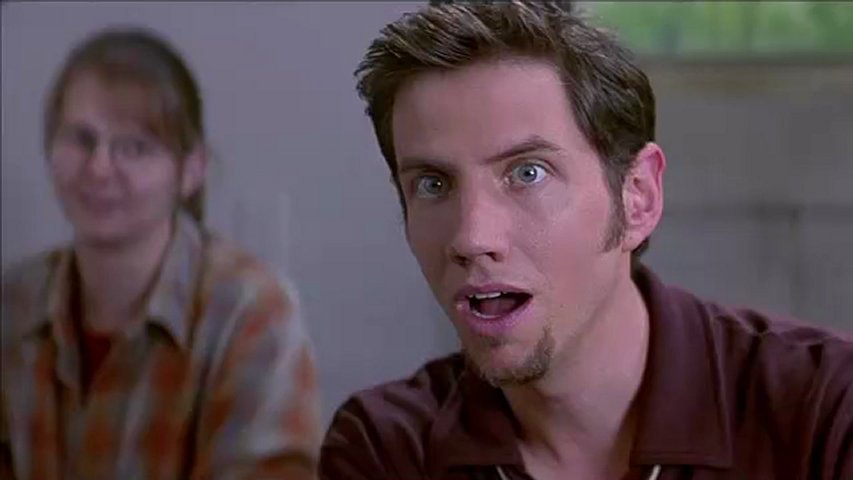
1996’s Scream wasn’t just a great slasher film, but a film that responded to criticisms of the horror genre and featured self-aware protagonists who are aware of movie clichés, inspired by Wes Craven’s feelings about how the genre had evolved. Considering how self-aware the first film was, it makes sense that Scream 2 would lampoon the nature of movie sequels, and the film uses the media fixation surrounding Sidney Prescott (Neve Campbell) as a parallel to the hype surrounding the sequel.
Like the first film, Scream 2 manages to combine the best of teen movie humor with a genuinely engaging whodunit storyline with a killer reveal that is satisfying. Campbell once again proves to be a clever subversion of the horror movie final girl, and David Arquette and Courtney Cox also reappear in beefed up roles that flesh out their characters after only having limited screen time in the first film. Like comedy sequels, horror sequels also tend to struggle with being original, but Scream 2 is easily one of the best horror sequels of the 1990s.
2. New Nightmare
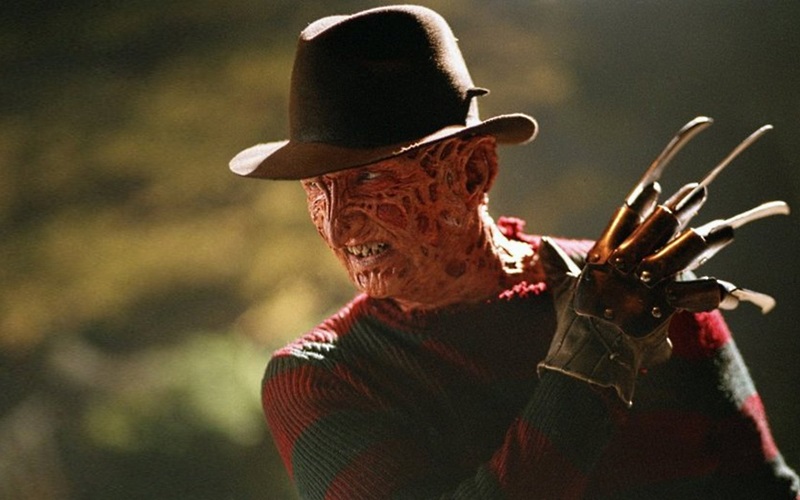
Wes Craven had always intended the character of Freddy Krueger to be a menacing, terrifying embodiment of nightmares, but the sequels to A Nightmare on Elm Street gradually grew campier and transformed Freddy into an increasingly goofy villain. New Nightmare was Craven’s return to the franchise, but instead of working within the original continuity, the film took a meta approach. The film takes place within a version of reality where the cast and crew of the franchise appear as themselves and are haunted by Freddy, who has escaped the film universe and come into the real world.
It was a bold approach to the franchise that not only addressed Craven’s quarrels with the other sequels, but managed to be just as scary as the first film. The film posed interesting questions about the psychological effects of the horror genre and the relationship between an artist and their creation, and everyone from Heather Langenkamp to Craven himself do a great job at portraying versions of themselves. Although it didn’t get the attention it deserved at the time, New Nightmare is easily the best film in the franchise since the original, and the cerebral, self-aware approach to the horror genre would help predate what Craven would do with the Scream series.
1. Star Trek: First Contact
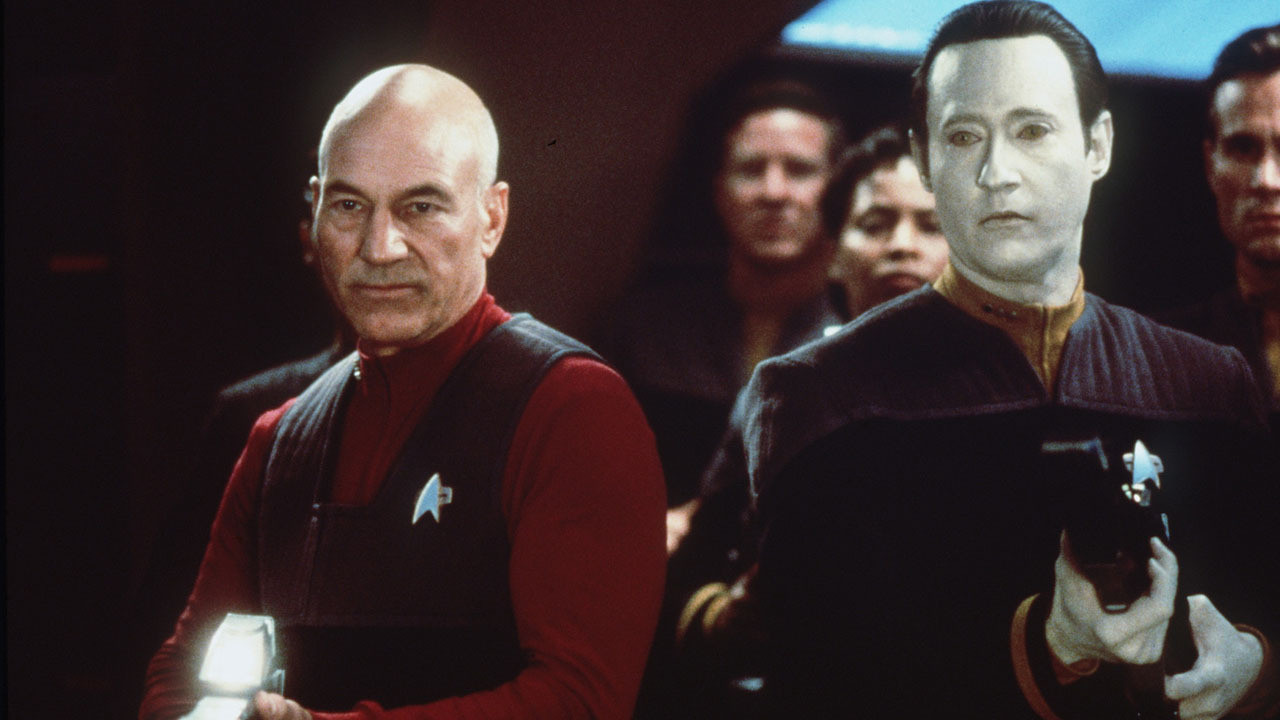
In general, the Star Trek films starring the cast of The Next Generation failed to live up to the expectations set by both fans of the show and those who had enjoyed the previous films starring the cast of the original Star Trek series. The one exception is Star Trek: First Contact, the excellent eighth film in the franchise that saw Patrick Stewart’s Captain Picard and the crew of the U.S.S. Enterprise attempting to stop the Borg from taking over Earth. The relentlessly paced film is easily one of the most action-packed in the series, but also one of the more philosophical, as Picard’s beliefs about his quality as a leader are shaken and Data begins to question his humanity through his encounters with the Borg Queen.
In addition to Picard’s central quest to save the Enterprise from destruction, there is an engaging side plot involving William Riker (Jonathan Frakes) and Deanna Troi (Marina Sertis) traveling back in time to convince a famous inventor (James Cromwell) to complete his warp drive technology. The time travel element is well woven into Picard’s mission, and the film is able to obey the rules of time travel that were previously established in the franchise.
Stewart is once again the most engaging part of the film, and Picard has rarely been as vulnerable as he is here; his famous “this far, no farther” monologue became iconic for a reason, and perfectly captured the essence of Picard’s character. Ranking alongside Wrath of Khan and The Voyage Home as one of the best films in the Star Trek franchise, First Contact is an intelligent and emotionally engaging sci-fi action film.